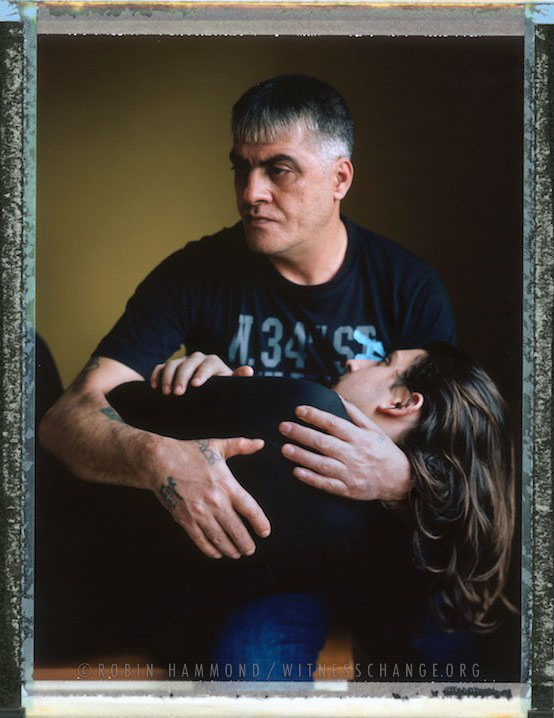Abou El Kheir / Syria
45 year old Abou El Kheir, is from Damascus, Syria. He is divorced with three children who are in Syria with his ex-wife. Talking about his life back in Syria Abou El Kheir says “I was attracted to men more than women. I got forced to get married, to cover up I was gay when I was young. Whenever I saw a man I would say ‘I want this man’. I had these secret encounters with men while I was married.”
In 2002 his life changed for the worse: “My youngest son needed surgery, but I didn’t have money. My friend sent me to a place to get the money. I collected a bag a drugs and in return I got the money to do the surgery. I was obliged to do it. But while I was doing that I got arrested. I spent 11 years in prison… from 2002 to 2013 – and I couldn’t do the surgery for my child. My son died. My wife divorced me while I was in prison. When I got out from prison I found out my brother had sold my house and kicked out my wife and kids. And my mother had died. During these 11 years I had no access to my family. My family thought I was dead. There was no one to be with when I left jail. When I got out, the war had started. I spent three months sleeping on the street in Damascus. I had nothing and no one. So I decided to come to Lebanon. The main reason I left Syria was the war. I started working in a bath-house in Beirut. In august 2014 the morality police raided the bath-house on the pretext that ‘unnatural sexual activity’ was going on in there.”
They arrested Abou El Kheir and 26 others. He spent one month in prison but no charge was placed against him. “They didn’t even ask me a single question, not even my name. It was like they forgot me.” “I met Sari in that bath house. As soon as I saw him, I had this strange feeling. Sari filled all the emptiness left by my brother, my lost son, he covered everything for me.” Sari and Abuou El Kheir now live together in Beirut. Abou El Kheir has no source of income so he eats at local NGO Proud Lebanon who provide one hot meal a day to LGBT refugees.
“I would never go back to Syria.” He says. “I want to go to a place where there are no Arabs… they see gay people as bad and try to put you in the corner. They have this idea that being gay means you are paedophiles. I know a lot of people in Syria who faced a lot of big trouble for being gay. One of my friends who worked in a restaurant, they knew he was gay so they beat him a lot and they cut his legs off! In the jail I saw many people being raped. They used to humiliate and one time they beat someone with a small knife, just because he was gay.” “Things have become worse since the war started. There are these groups of people who have nothing to do but chase gay people and force them to leave the city.”
Abou El Kheir and Sari are writing a play about their lives. They will be wearing masks in the play. Abou El Kheir says “A lot of gay people are facing a lot of problems. But they are not talking about it. I will be the voice of these people.” Abou El Kheir hopes that people outside the region will hear about the play “Maybe someone will hear us and help us… Outside the Arab world they will understand us and protect us. There is freedom there. They don’t treat you as they treat you here, as if you are nothing. For example here if you are gay they will not give you a job. But outside the Arab world they won’t even ask you if you are gay or not. You are rejected here. You will die because you are gay. I’m seeking to live in a peaceful place and feel comfortable. Not spending all my time in fear from police and society. I just want to have a job and go back home and have no one make problems for me. If I am looking for a job here, they will ignore me because I am gay”




